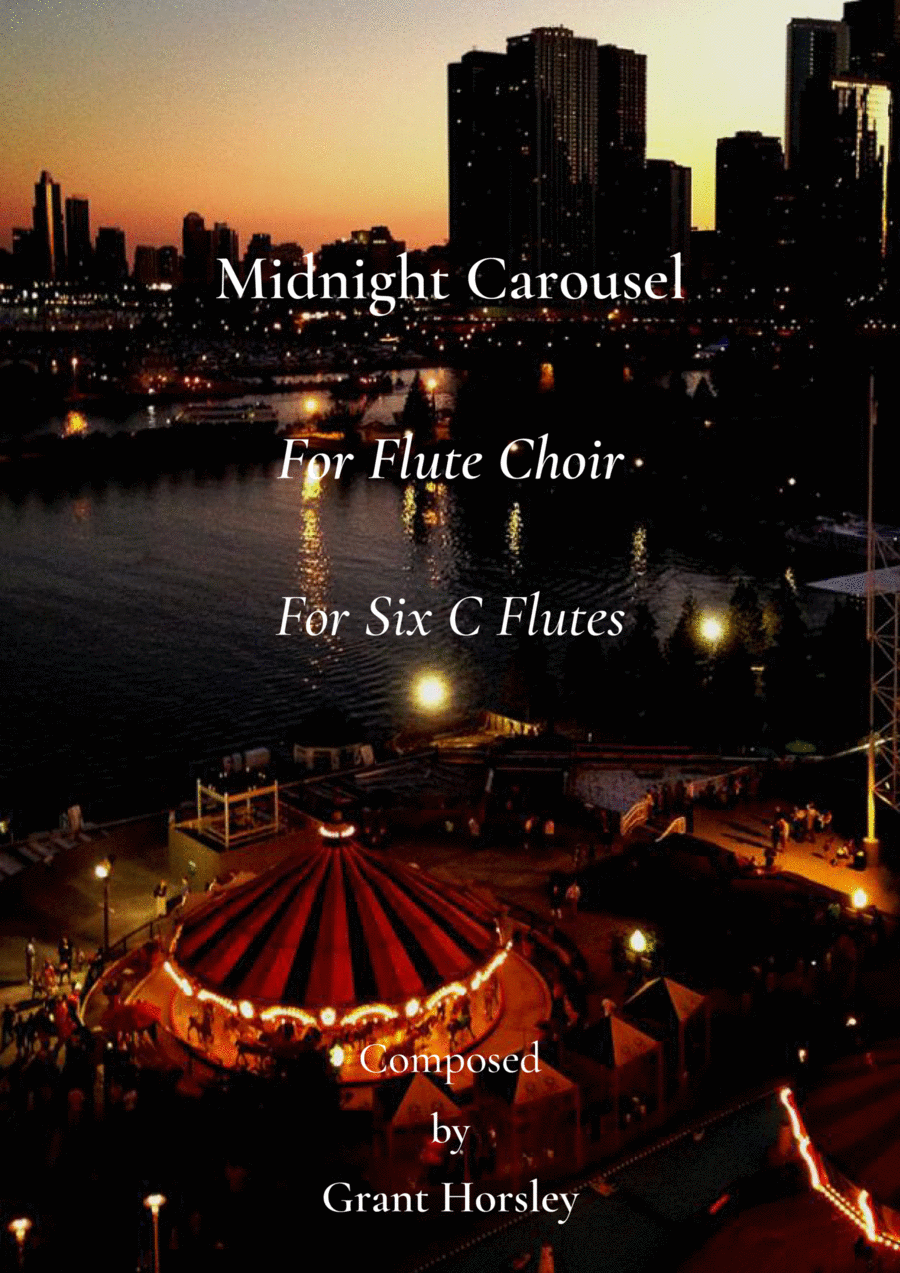Flute Choir,Woodwind Ensemble Flute - Level 3 - Digital Download SKU: A0.1174640 Composed by Grant Horsley. Classical,Contemporary,Contest,Festival,Halloween,Multicultural,World. 43 pages. Grant Horsley #774762. Published by Grant Horsley (A0.1174640). Midnight Carousel is scored for Six C Flutes. -A Flute choir comprising 4 C Flutes, Alto and Bass Flute is also availableMidnight Carousel is in the deep rich key of D minor to aid to the After Dark mood and mysteryThe piece has two distinct ideas. After the introduction a Circus- type Waltz begins, when this is repeated it has a very haunting counter melody which is both lilting and lyrical. As the piece develops, an out of character playful Scherzo theme begins which adds some intensity and mystery surrounding the Midnight Carousel. Both Waltz and Scherzo themes exchange dialogue throughout this section as if wanting some sort of control, when suddenly two accents appear to signify a halt We then return to the opening theme once more to lead us to a finish. Before the conclusion however, the Scherzo theme re-instates it's ideas before the final bars!The whole score is on the youtube link for you to assess suitability- It has been set to intermediate level as the range is around 2 octaves with some parts less than this. Mainly Quarter and Eighth notes used throughout- therefore it would be appropriate for some early-intermediate players.It is around 3 mins 30 long and price is for full score and all parts.Ideal for concerts, contests, productions, halloween, folklore/fantasy themes or simply something different to add to the repertoire.
